
Sir Martin remembers sitting on the steps of Manual High School one day with some friends when a man with broad shoulders and a stack of papers in his right hand walked by on his way out of the building. He had a bald head except for a square patch on the back.
“So I started crackin’ up,” recalls Martin, a gang member at the time. “And I said, ‘Look guys, he got the soul patch!”
The boys started laughing. Then the man, Philip Douglas, turned around and gave what Martin calls a “feel” smile, “like one of those big ‘ol smiles that makes you feel warm inside.”
Douglas walked up to the boys and introduced himself. He told them he worked for Project Voyce, and that the organization was hiring that summer. He handed Martin an application.
“It was just his presence," Martin says. "How he approached me that made me feel like, ‘You know what? I think I might want to apply.'”
Big jump from gang life
What Martin didn’t know at the time was that Project Voyce was a youth leadership program.
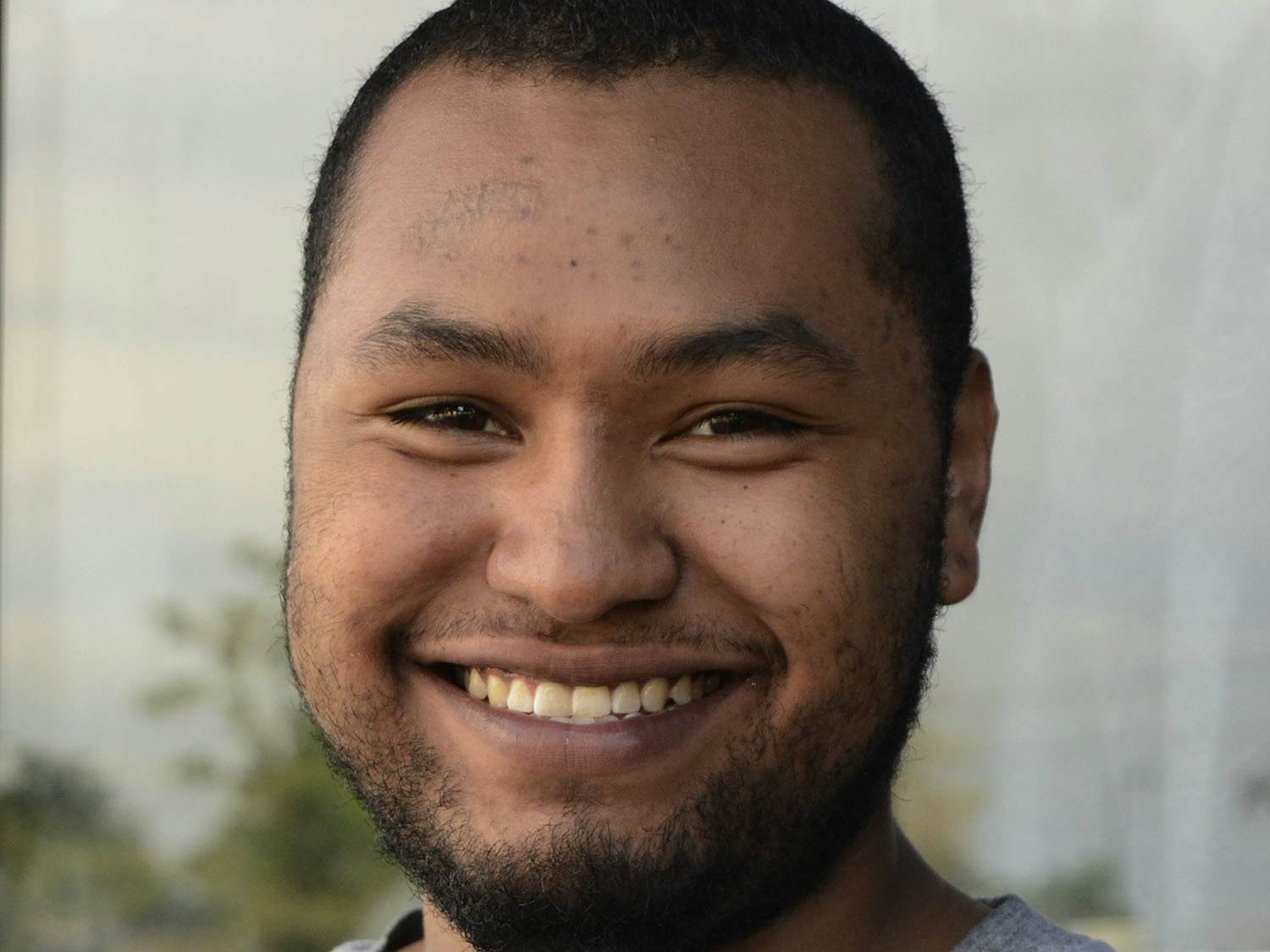
His focus back then was hanging out with the gang he joined while attending Manual.
Some of his family members were in gangs, too. He knew the gang terminology, and he yearned to fit in. Every day he'd go home on the light rail and he’d pass 27th and Welton streets and look out at a group of people of people "gambling, maybe smoking weed, but they looked like they were having a good time,” he says. “I remember telling myself ‘Dang, one day I want to go over there and hang out with them.' So after I joined the gang it felt like these big doors had opened, like ‘now I’m finally accepted and I can go around and say ‘what’s up to anybody and feel like I’m carefree and walk around without any worries or woes.”
Drugs, crime, and violence came next. So the day Douglas handed him that job application, Martin decided to go ahead and apply to Project Voyce. And he found his goals for life began diverging from the gang.
“I don’t want to go around causing mayhem,” he says. “ I would rather live in peace, have businesses and be self-sufficient, I just changed my priorities and the people I hung around with. I’m a positive person, I’d rather build people.”
To make the shift is very hard, he says. “It has its challenges.”
Identifying and finding solutions
Project Voyce is designed to help students who are struggling, whether it's at school, in their family life, or in their friendships. Executive Director Dayna Scott says the Denver-based program gives youth tools to help them feel like they have the power to make a change in their schools and their lives.
Participants are often students who are homeless, have attended multiple schools, have been in gangs, or who are doing well academically but who have behavior problems stemming from a lack of communication skills so are kicked out of school.
“A lot of our students have not been very successful in traditional school settings,” Scott says. The organization puts a focus on finding ways to connect with the students, and help them.
“Often their experience in schools is people don’t really care and try to build relationships with them and they don’t really try to figure out what’s going on,” she says. “They’re just interested in ‘did you do your homework, how did you do on the test?’”
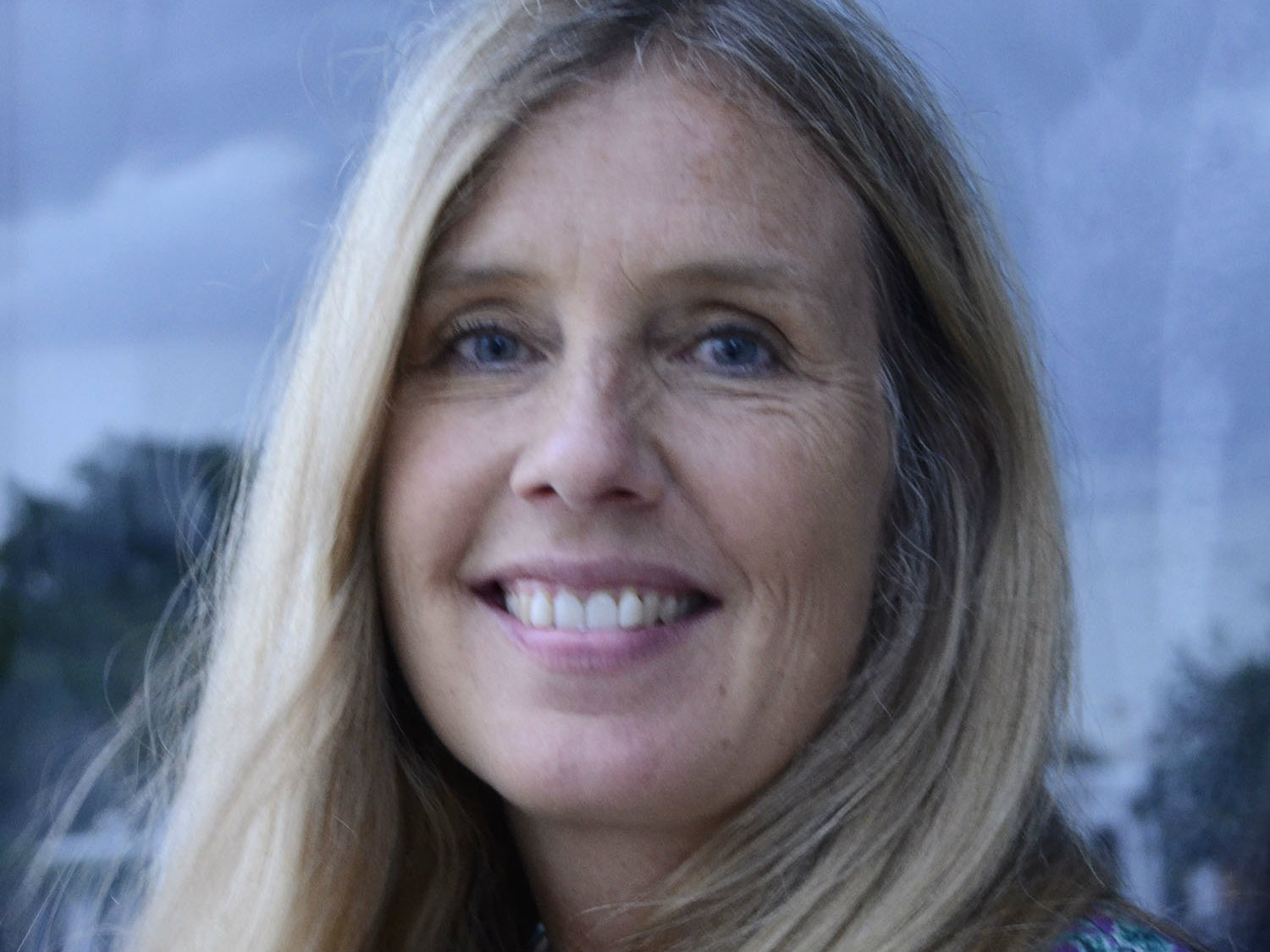
If someone had taken the time to find out, Scott says they might learn that the student was trying to find food for the family, help a parent who is in crisis, take care of younger siblings, look for a place to sleep that night, or be busy working to pay the rent.
What makes Project Voyce unique is that it provides both a job and a youth leadership training program. Participants are paid after being trained to be leaders and advocates in their schools and communities. Teams of students meet at five partner schools in Metro Denver, identify issues at their schools, and work to find solutions.
Sir Martin in the mountains
After an interview at the Project Voyce offices, Martin got the job he applied for. Before too long he was heading to the mountains for a four-day retreat, part of an eight-week Summer Leadership Institute to build the team “and get people out of their comfort zone and thinking ‘yes I can do this,' " says Scott.
It was Martin’s first time in the mountains, and he says what he remembers is "no cell phones, no running water, no deodorant." He also learned a lot from the intense and personal leadership sessions. But it was a chess game that he remembers most.
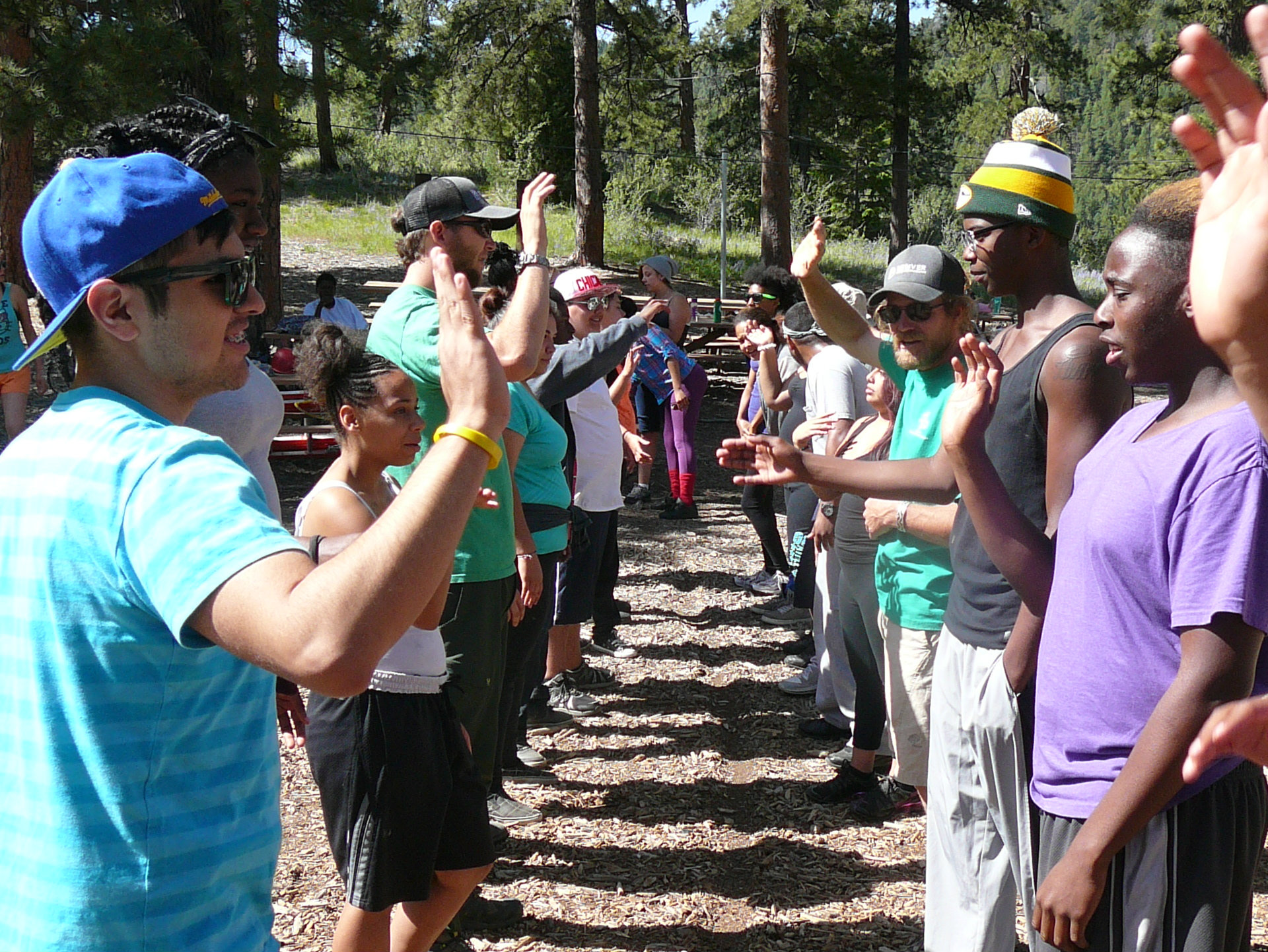
The man who’d handed him the application back on the steps of Manual High, Philip Douglas, had brought along a chess board. Martin, who likes chess, presumed he could beat him. But Douglas beat Martin in less than 10 moves.
“I remember asking Phil, 'Man, what are you doing?'" Martin recalls. "How’d you do that? He told me something that changed my life. He said, ‘I make all my moves count. I don’t make frivolous moves. I make my next move my best move."
Douglas became Martin’s mentor and Martin began to apply that chess philosophy to his life.
Communication skills for life
In the Project Voyce trainings, students build skills around non-violent communication, making decisions, setting goals, speaking in public, developing confidence and grit, and finding purpose.
Scott says non-violent communication is a big one. She says a lot of the youth are not used to getting their needs met in a way that feels respectful to teachers. An example: A student doesn’t get the grade that he or she feels like they deserve and demands that the teacher give them a better grade.
“They don’t ask questions, they don’t necessarily negotiate, they just don’t have the skills to talk in a way that adults will take them seriously and they will listen,” Scott explains. The often-blunt survival skills the students use on the street or at home yield them results. But surviving in other arenas like school or in a job, they need to learn different skills, she says.
Building confidence
Martin graduated from Manual in 2011. He worked for Project Voyce part-time but also devotes some of his time to trying to get a non-profit off the ground. Currently enrolled in CU Denver but not taking classes because he owes the university $6,000, he’s interested in studying business. He identifies public speaking as another key skill students learn.
“A lot of students who come in there are afraid to interact with other people,” he says. “Sometimes they’re unsure of what to say or they feel like people are judging them.”
“I didn’t know how to use my words,” Martin says. “If I really wanted to speak to somebody sometimes it came out kind of mumble-y or timid. Another thing I’ve learned about public speaking is it’s not always what you say but how you look saying it.”
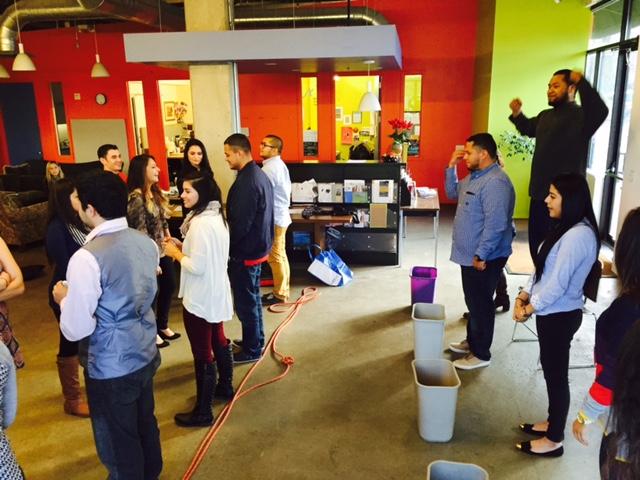
The program is peer-led by college students or high school students. They do the hiring, the curriculum, and the training. And that means new participants who are just entering the program always have role models they can see who they can identify with and who are becoming stronger.
Martin says his dad was a good role model in terms of his values, but Martin didn’t have any role models at home with goals. He says he showed up to school but he didn’t strive, didn’t try to get A’s or B’s.
“My Dad used to tell me back in the day, he’d say ‘Son, as long as you bring home a D that’s not failing, that’s good to me,’” Martin recalls. “So my standards weren’t very high. I used to bring home C's and D’s and think it was alright because my Dad didn’t push me too hard. I was passing, made it to the next level.”
The program also tries to expose the students to new ideas about what they can hope for in their lives.
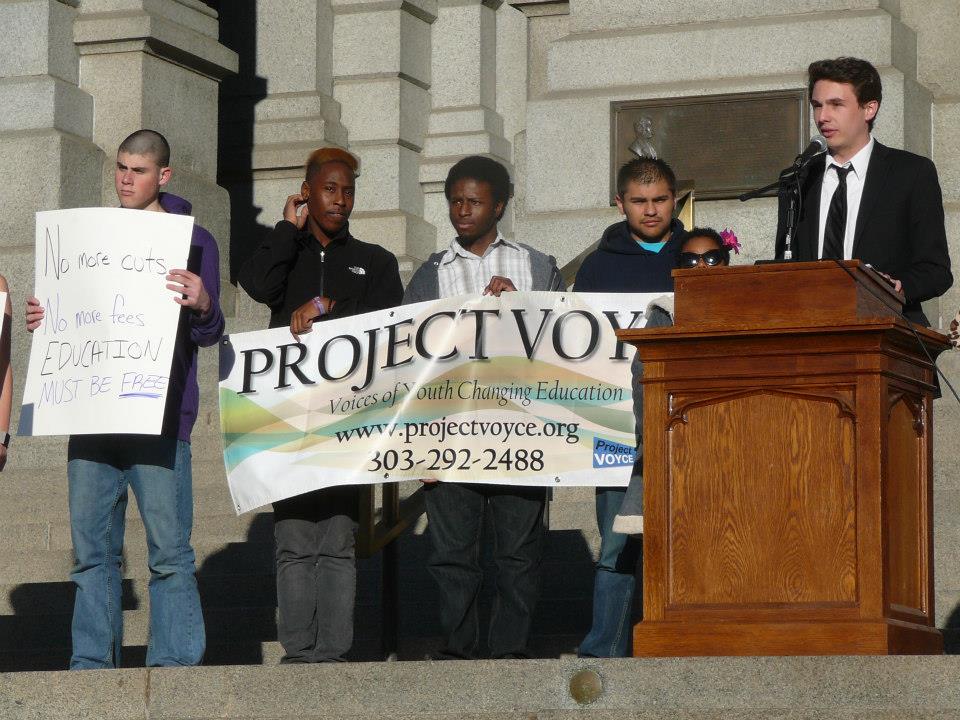
“Because I think for a lot of students, they’re in survival mode,” Scott says. “ It’s all about getting food on the table, it’s all about taking care of their siblings, it’s all about having somewhere to sleep about at night. It’s not about what do I do with my life. Do I want to be an astronaut? Do I want to be a writer?”
Of the 35 students who attend the Summer Leadership Institute each year, nearly 90 percent finish. Then they become “core leaders.” Of those, 95 percent graduate from high school and 84 percent go on to college.
“Considering the demographic we work with, that’s pretty remarkable,” Scott says.









